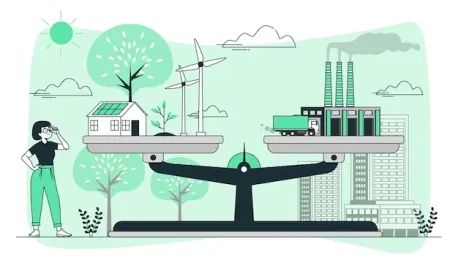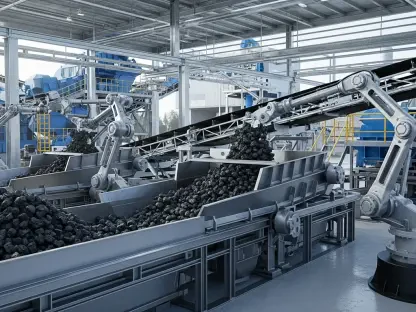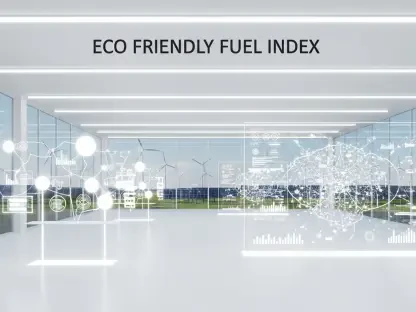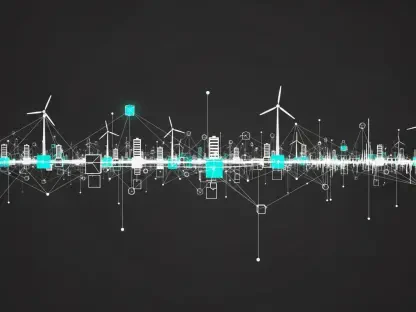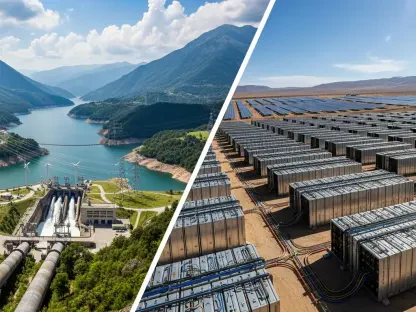In today’s interview, we have Christopher Hailstone, an expert in energy management, renewable energy, and electricity delivery. He will share his insights on the European Commission’s latest proposals to reduce bureaucratic burdens and their potential impacts on the energy sector.
Can you provide more details on the European Commission’s next package of proposals aimed at reducing bureaucratic burdens?
The European Commission’s next package of proposals is aimed at lightening the regulatory load on industries that have been struggling. These proposals intend to streamline EU energy legislation by simplifying existing rules and reducing unnecessary bureaucratic steps. The focus is to create a more business-friendly environment, especially benefiting small and medium-sized enterprises, helping them to navigate regulatory requirements more efficiently.
What specific changes are being considered for EU energy legislation?
The changes under consideration include revisions to the sustainability reporting rules and energy policy. Specifically, the Commission is looking at updating the EU Energy Efficiency Directive to make it less burdensome. This might involve reducing the frequency of required energy audits and simplifying the processes for large businesses to develop their energy management plans.
How do these proposals intend to assist struggling industries?
By cutting down on regulatory complexities, these proposals aim to lower the operational costs and administrative workload for companies. This should provide immediate relief to industries facing financial pressures, allowing them to allocate resources more effectively and focus on innovation and growth.
In February, the EC unveiled proposals to reduce sustainability reporting rules. Can you explain what these rules currently entail?
Currently, sustainability reporting rules require companies to disclose detailed information about their environmental impact, including carbon emissions and energy consumption. These reports are extensive and can be particularly burdensome for small and medium-sized enterprises that may lack the resources to compile such comprehensive data.
How will the simplification of these rules impact businesses, especially small and medium-sized companies?
Simplifying these reporting rules will significantly reduce the administrative burden on businesses, especially smaller ones. By making the reporting process less cumbersome, companies can save time and resources, potentially improving their overall efficiency and enabling them to focus more on core business activities instead of compliance woes.
What are the primary goals of simplifying the bloc’s energy policy?
The primary goals are to enhance the efficiency of regulatory frameworks, reduce unnecessary regulatory pressures, and foster a more competitive business environment. This aligns with the broader aim of the European Commission to support economic growth and sustainability by making it easier for businesses to comply with energy policies without sacrificing their operational effectiveness.
How will the proposed changes affect the current requirements for energy audits and management plans for large businesses?
Proposed changes are likely to ease the frequency and complexity of energy audits and the development of energy management plans. This could mean less frequent audits and simpler, more streamlined reporting and planning requirements, making it less time-consuming and costly for businesses to stay compliant.
What specific aspects of the renewable energy law are being considered for simplification?
The renewable energy law currently sets binding targets for the use of renewable energy sources. The proposed simplifications might include more flexible timelines for achieving these targets and streamlined procedures for reporting progress. The goal is to uphold the commitment to increasing renewable energy use while making the regulatory process more straight forward and accessible.
How might these changes influence the targets set for countries to expand their use of renewable energy sources?
These changes could encourage greater compliance and foster innovation by reducing administrative hurdles. Countries may find it easier to set ambitious targets and achieve them as the path to compliance becomes less daunting and more supportive of proactive efforts in renewable energy adoption.
The article mentions a campaign launched by Brussels to eliminate bureaucratic obstacles. Can you elaborate on this campaign?
The campaign is focused on identifying and removing bureaucratic barriers that hinder business operations within the EU. By addressing these obstacles, the European Commission aims to level the playing field, allowing European businesses to compete more effectively against their counterparts in regions like China and the United States, where regulatory burdens are perceived to be lower.
What are some of the main obstacles that European businesses face, making them feel at a disadvantage compared to China and the United States?
European businesses often face complex regulatory requirements, lengthy approval processes, and high compliance costs. These factors can slow down innovation, increase operating expenses, and reduce competitive edge. By simplifying these procedures, the Commission hopes to alleviate these disadvantages.
The EU Energy Efficiency Directive is currently being evaluated. Can you explain the directive’s current provisions and binding targets?
The EU Energy Efficiency Directive sets binding targets for energy consumption reduction across the bloc. It mandates regular energy audits for large enterprises and requires them to develop management plans aimed at improving their energy efficiency. These measures are designed to drive the EU towards its sustainability goals.
What changes are potentially being discussed to revise this directive?
Potential changes could include more flexible requirements for audits, reducing their frequency, and simplifying the criteria for management plans. The intention is to maintain the directive’s effectiveness while making compliance less burdensome.
According to recent statistics, the EU reduced energy imports in 2024. Can you provide more context on these figures?
In 2024, the EU saw a 7.1% reduction in energy imports compared to the previous year, amounting to 720.4 million tons. In monetary terms, the value of these imports decreased by 16.2% to €375.9 billion. This reduction reflects the EU’s efforts to enhance energy self-sufficiency and decrease reliance on external sources through increased local production and energy efficiency measures.
What implications do these reductions have for the EU’s overall energy strategy?
These reductions indicate a positive shift towards greater energy independence and resource efficiency. They align with the EU’s long-term strategy to reduce reliance on fossil fuels, enhance energy security, and meet its climate goals by promoting renewable energy and improving energy efficiency.
GMK Center reported that nearly half of all electricity in the European Union was generated from renewable sources last year. How is this shift impacting the energy landscape in the EU?
This significant increase in renewable energy generation is transforming the EU energy landscape by reducing dependence on fossil fuels, lowering carbon emissions, and fostering technological innovation. It reflects the EU’s commitment to sustainability and its leadership in the global transition to clean energy.
What steps is the EU taking to continue increasing its share of clean energy?
The EU is continuing to support renewable energy projects through funding, incentives, and favorable policies. Initiatives include setting higher targets for renewable energy adoption, investing in grid infrastructure to accommodate variable renewable sources, and promoting research and development in clean energy technologies.
What is your forecast for the future of EU energy policy?
I foresee the EU continuing to prioritize the transition to renewable energy and energy efficiency while making regulatory frameworks more business-friendly. This balance will help the EU achieve its sustainability goals, support economic growth, and maintain its competitive edge in the global market.
